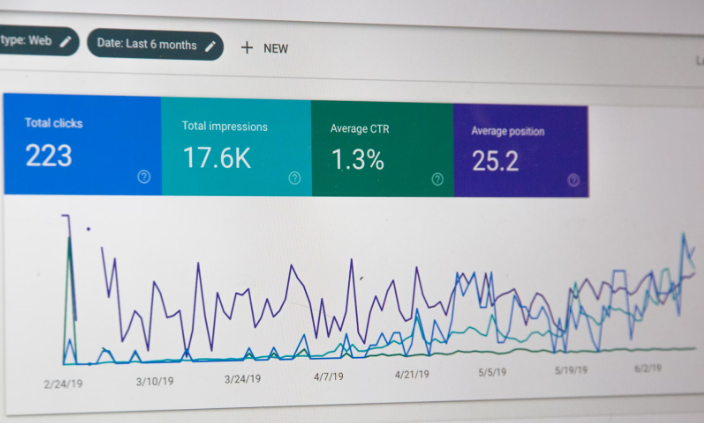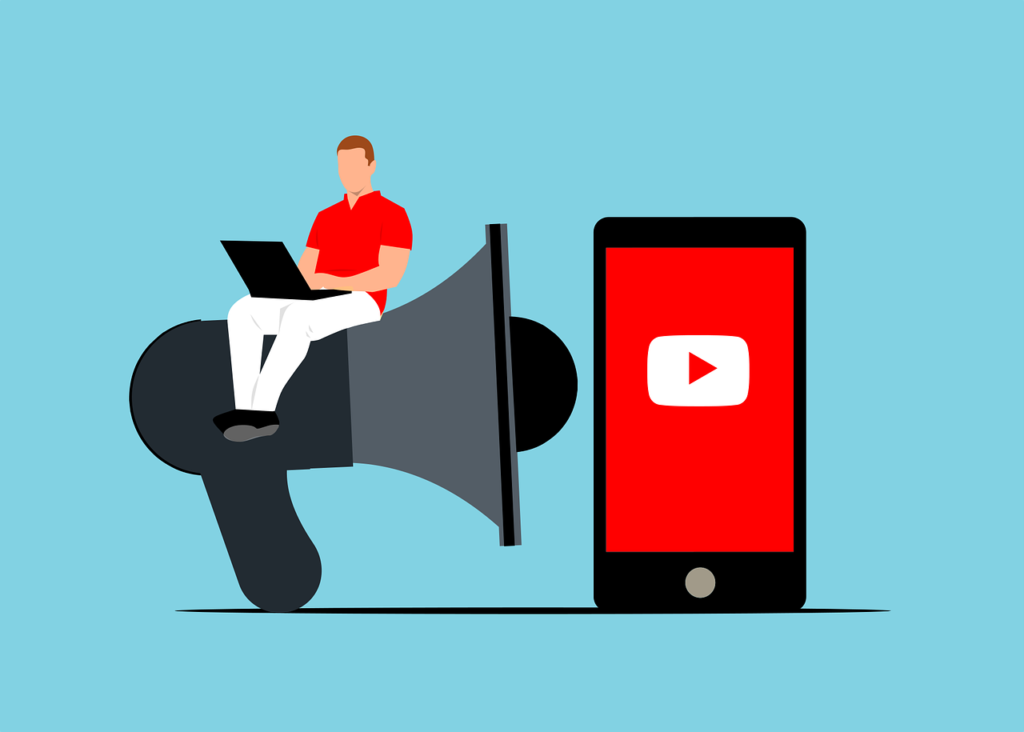WinSavvy Editorial Standards
How this article was created
In the age of global marketing, the importance of local marketing remains undiminished. For small businesses and startups, engaging with the local community can be incredibly beneficial. It’s not just about selling products or services; it’s about creating meaningful connections and becoming a valued part of the community.
Understanding Your Local Market
Before diving into specific strategies, it’s crucial to understand your local market.
Knowing your community’s demographics, preferences, and unique characteristics can guide your marketing efforts and make them more effective.
Conduct Local Market Research
Local market research helps you gather valuable insights into your community.
Use surveys, interviews, and local focus groups to understand the needs and preferences of your potential customers.
Partner with local schools or community centers to distribute surveys. Offer small incentives, like discounts or freebies, to encourage participation.
Use the data collected to tailor your marketing strategies to better meet the needs of your community.
Analyze Local Competition
Understanding what your competitors are doing can provide insights into what works and what doesn’t in your local market. Visit their stores, analyze their marketing materials, and observe their customer interactions.
Create a SWOT analysis (Strengths, Weaknesses, Opportunities, Threats) for your top competitors.
Identify areas where you can differentiate your business and offer unique value to the community.
Building Community Relationships
Strong relationships with local residents and organizations are the foundation of successful local marketing. Being a part of the community can help you build trust and loyalty.
Partner with Local Businesses
Collaborating with other local businesses can be mutually beneficial. It can help you reach new customers and build a stronger community network.
Identify businesses that complement yours.
For instance, if you run a coffee shop, consider partnering with a local bakery. Create joint promotions, host co-branded events, or offer combined discounts.
Engage in Local Events
Participating in local events is a great way to increase your visibility and connect with potential customers. This could include fairs, festivals, markets, or charity events.
Set up a booth or a stall at local events. Engage attendees with interactive activities, free samples, or demonstrations of your products.
Ensure your branding is visible and consistent.
Leveraging Social Media for Local Reach
Social media can be a powerful tool for local marketing when used strategically. It allows you to reach a large audience and engage with your community on a personal level.
Geotargeting Ads
Geotargeting involves using location data to target ads to people in a specific area. This ensures your ads are seen by those most likely to visit your business.
Use platforms like Facebook and Google Ads to create geotargeted campaigns.
Focus on promoting special offers, events, or new products to people within a certain radius of your location.
Community Engagement on Social Media
Engage with your local community on social media by sharing relevant content, participating in local conversations, and showcasing your involvement in community activities.
Follow local influencers, businesses, and community groups on platforms like Instagram, Facebook, and Twitter.
Comment on their posts, share their content, and tag them in your posts to build relationships and increase your visibility.
Hosting Local Events
Hosting your own events can create buzz and draw people to your business. Events provide a platform to showcase your products and services while offering a memorable experience.
In-Store Events
In-store events can range from product launches and workshops to themed parties and customer appreciation days. These events can attract foot traffic and provide a firsthand experience of your brand.
Plan a calendar of events that cater to different segments of your community. Promote these events through flyers, social media, and local newspapers.
Offer exclusive discounts or giveaways to attendees.
Community Workshops
Offer workshops that provide value to your community. These could be related to your products or general interest topics that align with your brand.
If you own a hardware store, you could host DIY workshops.
If you run a wellness center, consider yoga or meditation classes. Promote these workshops
Leveraging Social Media for Local Reach

Social media can be a powerful tool for local marketing when used strategically. It allows you to reach a large audience and engage with your community on a personal level. To maximize its potential, you need to go beyond basic posts and create a strategic approach that resonates with your local audience.
Creating Hyper-Local Content
Hyper-local content focuses on your specific geographic area and is highly relevant to your local audience. This type of content can build a strong connection with your community.
Highlight Local Stories and Events
Share stories and news that are relevant to your community. This can include local events, news stories, or features on local personalities. Highlighting local stories can make your social media presence more relevant and engaging to your audience.
Partner with local journalists or influencers to source compelling local stories. Share these stories on your social media platforms with high-quality images or videos.
Use hashtags related to your locality to increase visibility and engagement.
Spotlight Local Customers and Businesses
Showcase your local customers and businesses. This not only promotes a sense of community but also encourages others to engage with your brand.
Feature a “Customer of the Month” or “Local Business Spotlight” post on your social media channels.
Share their stories and how they interact with your business. Encourage them to share the post on their own social media, increasing your reach.
Running Local Contests and Giveaways
Contests and giveaways are effective for increasing engagement and attracting new followers. Tailoring these to your local audience can enhance their impact.
Local-Themed Contests
Create contests that resonate with your local audience. This could involve local landmarks, community events, or local traditions.
Run a photo contest where participants share pictures of their favorite local spots. Encourage them to use a branded hashtag and tag your business.
Offer a prize that is appealing to your local audience, such as a gift card to a popular local restaurant.
Partner with Local Influencers
Collaborate with local influencers to host giveaways. Their endorsement can boost your credibility and expand your reach within the community.
Identify influencers who have a strong local following.
Partner with them to create a giveaway that promotes your products or services. Ensure the giveaway rules include following your social media account and sharing the post to enter.
Utilizing Social Media Advertising
Paid social media advertising can help you reach a broader local audience. Use targeted ads to ensure your content is seen by people in your area.
Geo-Targeted Ads
Use geo-targeting features on platforms like Facebook and Instagram to target users in your specific location.
This ensures that your ads are shown to people who are most likely to visit your business.
Create ads that highlight special offers, new products, or upcoming events. Use compelling visuals and clear calls-to-action.
Monitor the performance of your ads and adjust targeting parameters to optimize results.
Promoting Local Events
If you are hosting or participating in local events, use social media ads to promote them. This can increase attendance and engagement.
Develop a promotional campaign for your event with a series of ads leading up to the date.
Include details about the event, what attendees can expect, and any special offers. Use engaging visuals and video content to capture attention.
Engaging with Local Community Groups
Community groups on platforms like Facebook and Nextdoor are great for connecting with local residents. Active participation in these groups can boost your visibility and credibility.
Joining Local Groups
Join local community groups where residents discuss news, events, and recommendations.
Participate in conversations to build relationships and promote your business subtly.
Regularly contribute to discussions in these groups. Offer helpful advice, share relevant news, and engage with members’ posts.
Avoid direct sales pitches; instead, focus on building genuine connections.
Creating Your Own Community Group
Consider creating your own community group centered around your business or industry. This can position you as a local leader and provide a platform for direct engagement with your audience.
Start a Facebook Group or a group on Nextdoor focused on a relevant theme, such as “Healthy Living in [Your Town]” if you run a wellness business.
Encourage discussions, share valuable content, and host virtual events to keep the group active and engaged.
Leveraging User-Generated Content
User-generated content (UGC) can build trust and authenticity. Encouraging your local customers to create and share content related to your business can enhance your community presence.
Encouraging UGC
Ask your customers to share their experiences with your products or services on social media. Feature their content on your own channels to show appreciation and build community.
Run a campaign encouraging customers to share photos or stories about their experiences with your business.
Offer a small incentive, such as a discount on their next purchase, for those who participate. Highlight the best submissions on your social media profiles.
Creating Branded Hashtags
Develop a branded hashtag that your customers can use when posting about your business. This makes it easier to find and share user-generated content.
Promote your branded hashtag on your social media profiles, in-store, and on your website. Encourage customers to use it when sharing their experiences.
Regularly search for the hashtag and engage with the posts to build a sense of community.
Through local channels and encourage attendees to bring friends and family.
Utilizing Local Media

Local media outlets can be invaluable for reaching a wider audience within your community. These include local newspapers, radio stations, community websites, and even local TV channels. By strategically leveraging these platforms, you can enhance your visibility and establish a strong local presence.
Building Relationships with Local Journalists
Establishing relationships with local journalists can lead to ongoing media coverage. Journalists often look for interesting stories within the community, and being a trusted source can put your business at the forefront of their minds.
Networking with Journalists
Attend local events and media gatherings to meet and network with local journalists. Building personal relationships can make it easier to pitch stories in the future.
Identify key journalists who cover your industry or local business news. Follow them on social media and engage with their content. When attending local events, introduce yourself and share a bit about your business.
Follow up with an email or LinkedIn message to keep the connection alive.
Providing Exclusive Stories
Offering exclusive stories to local journalists can make your pitches more attractive. Provide unique angles that showcase your business in an interesting light.
When launching a new product or hosting a special event, reach out to a journalist you’ve built a relationship with and offer them an exclusive first look or interview.
Highlight why the story would be of interest to their readers or viewers.
Maximizing Press Releases
Press releases remain a powerful tool for communicating significant news to the local media. Crafting and distributing effective press releases can generate valuable coverage for your business.
Crafting Compelling Press Releases
A well-written press release should be clear, concise, and newsworthy. Focus on creating a compelling headline and lead paragraph that grab attention.
Use the inverted pyramid style for your press releases, where the most important information comes first. Include quotes from key people in your business to add credibility and human interest.
Attach high-quality images to make your release more appealing.
Distributing Press Releases Strategically
Target your press releases to the right media outlets to ensure they reach the intended audience. Personalize your pitches to make them more relevant.
Create a media list of local newspapers, radio stations, TV channels, and community websites. Customize your press release emails to address the recipient by name and explain why the story is relevant to their audience.
Follow up a few days after sending to gauge interest and answer any questions.
Engaging with Local Radio
Local radio stations offer a platform to reach a broad audience within your community. Radio advertising and sponsorships can enhance your brand’s visibility and credibility.
Developing Radio Ads
Create radio ads that are clear, engaging, and memorable. Focus on delivering your key message in a way that resonates with local listeners.
Write a script that highlights your unique selling points and includes a strong call-to-action. Hire a professional voice actor if necessary to ensure the ad sounds polished.
Track the performance of your ads to understand their impact and optimize future campaigns.
Sponsoring Radio Programs
Sponsoring popular radio programs can increase your brand’s exposure and associate it with trusted local content.
Identify popular shows or segments that align with your brand values and target audience.
Negotiate sponsorship deals that include mentions of your business during the program, opportunities for live reads, and participation in on-air contests or promotions.
Utilizing Local TV Channels
Local TV channels can provide significant exposure, particularly for major announcements or visual content. Appearing on local TV can boost your credibility and reach a wide audience.
Pitching Stories to TV Channels
Local TV news programs often look for interesting stories within the community. Craft pitches that are visually appealing and newsworthy.
Develop a media kit that includes video footage, high-quality images, and a compelling story angle.
Reach out to local TV producers and news directors with your pitch, emphasizing why it would make a great visual story for their viewers.
Creating TV Ads
TV ads can be a powerful way to showcase your products or services. Ensure your ads are professional, engaging, and clearly convey your message.
Work with a professional production company to create high-quality TV ads.
Focus on clear messaging, strong visuals, and a memorable call-to-action. Use local TV ad slots to target specific programs or times when your target audience is most likely to be watching.
Building an Online Local Presence

Maintaining a strong online presence is crucial for attracting local customers and staying competitive. In the digital age, optimizing for local search engine optimization (SEO) is a key strategy for ensuring that local customers can find your business online. Here’s how to strategically and effectively optimize for local SEO.
Optimizing for Local SEO
Local SEO helps your business appear in local search results, making it easier for local customers to find you. By focusing on specific strategies, you can improve your visibility and attract more local traffic.
Claim and Optimize Your Google My Business Listing
Google My Business (GMB) is one of the most powerful tools for local SEO.
A well-optimized GMB listing can significantly enhance your visibility in local search results and on Google Maps.
Complete Your Profile
Ensure that all information in your GMB profile is accurate and complete. This includes your business name, address, phone number, website, and business hours.
Add high-quality photos of your business, products, and services. Regularly update your GMB profile with new images, posts about offers or events, and updates to business information.
Use relevant keywords in your business description to improve search visibility.
Encourage and Respond to Reviews
Positive reviews can boost your local rankings and attract more customers. Encourage satisfied customers to leave reviews and respond to them promptly.
After a successful transaction, send a follow-up email or text message asking customers to leave a review on your GMB profile.
Respond to all reviews, thanking customers for positive feedback and addressing any issues raised in negative reviews.
This shows that you value customer feedback and are committed to improving their experience.
Optimize Your Website for Local Keywords
Incorporating local keywords into your website content is essential for local SEO. This helps search engines understand your location and relevance to local search queries.
Conduct Local Keyword Research
Identify the keywords and phrases that local customers use when searching for your products or services. Use tools like Google Keyword Planner, Ahrefs, or SEMrush to find relevant local keywords.
Focus on long-tail keywords that include your location, such as “best coffee shop in [Your City]” or “affordable HVAC services in [Your City].”
Incorporate these keywords naturally into your website content, including titles, headings, meta descriptions, and body text.
Create Location-Specific Pages
If your business serves multiple locations, create separate pages for each location.
This helps you target location-specific keywords and provides relevant information to customers in different areas.
Each location page should include the address, phone number, business hours, and unique content relevant to that location.
Highlight local customer reviews and include localized content such as special offers or events in that area.
Leverage Local Citations and Directories
Local citations are online mentions of your business’s name, address, and phone number. Consistent and accurate citations across various platforms can improve your local SEO.
List Your Business on Local Directories
Submit your business information to reputable local directories and industry-specific sites. Ensure that your business details are consistent across all platforms.
Use tools like Moz Local or Yext to find and manage local directory listings.
Regularly audit your listings to ensure that all information is up-to-date and consistent. Prioritize high-authority directories and those that are popular in your local area.
Build High-Quality Backlinks
Backlinks from reputable local websites can boost your site’s authority and improve local search rankings.
Reach out to local bloggers, news sites, and industry influencers for backlink opportunities. Offer to write guest posts, participate in local interviews, or provide expert quotes.
Host local events or sponsor community activities and ask for mentions on event websites.
Encouraging Online Reviews
Positive reviews can boost your online reputation and influence potential customers.
Encourage satisfied customers to leave reviews on platforms like Google, Yelp, and Facebook.
Ask for reviews at the point of sale or in follow-up emails. Provide links to your review profiles to make it easy for customers.
Respond to all reviews, both positive and negative, to show that you value customer feedback.
Participating in Community Sponsorships
Sponsoring local events, teams, or organizations can increase your visibility and show your commitment to the community.
Event Sponsorships
Sponsoring community events can provide significant exposure for your brand. This can include local festivals, charity runs, or school events.
Choose events that align with your brand values and target audience.
Negotiate sponsorship deals that include your logo on promotional materials, booth space at the event, and mentions in event communications.
Supporting Local Sports Teams
Supporting local sports teams can foster community goodwill and provide regular exposure for your brand.
Sponsor local youth or adult sports teams. Provide branded uniforms, equipment, or financial support.
Attend games and engage with the community to maximize the impact of your sponsorship.
Implementing Referral Programs
Referral programs incentivize your existing customers to bring in new business. This can be a highly effective way to grow your customer base through word-of-mouth marketing.
Designing an Effective Referral Program
Create a referral program that rewards both the referrer and the new customer. This can encourage more people to participate and increase the likelihood of successful referrals.
Offer discounts, free products, or special privileges as rewards for referrals. Promote your referral program through your website, social media, and in-store signage.
Track referrals to measure the program’s success and make adjustments as needed.
Promoting the Referral Program
Effectively promoting your referral program ensures that your customers are aware of it and motivated to participate.
Use email marketing to inform your customers about the referral program. Share success stories of customers who have benefited from the program.
Highlight the rewards and ease of participation to encourage more referrals.
Engaging with Local Influencers
Local influencers can help amplify your message and reach new audiences within the community. These influencers have established trust with their followers, making their endorsements valuable.
Identifying the Right Influencers
Find influencers who have a genuine connection with your local community and align with your brand values. This ensures that their audience will be interested in your products or services.
Use tools like BuzzSumo or local social media searches to identify potential influencers. Look for engagement rates and authenticity rather than just follower count.
Reach out with personalized messages that explain how a partnership could be mutually beneficial.
Collaborating on Content
Work with influencers to create content that highlights your brand in an authentic and engaging way. This could include product reviews, sponsored posts, or social media takeovers.
Develop a content plan with the influencer that outlines the goals, key messages, and types of content to be created. Provide creative freedom to ensure the content feels genuine.
Share and promote the content through your own channels to maximize its reach.
Wrapping it up
Engaging content marketing is crucial for capturing attention and driving growth, especially for startups. By understanding your audience, creating diverse and interactive content, leveraging strategic distribution channels, and continuously analyzing performance, you can craft a robust content marketing strategy.
These advanced tactics not only attract and engage your audience but also convert them into loyal customers, ensuring sustained growth for your business. Implement these strategies to elevate your content marketing efforts and stay ahead in the competitive market.
READ NEXT:





















Comments are closed.